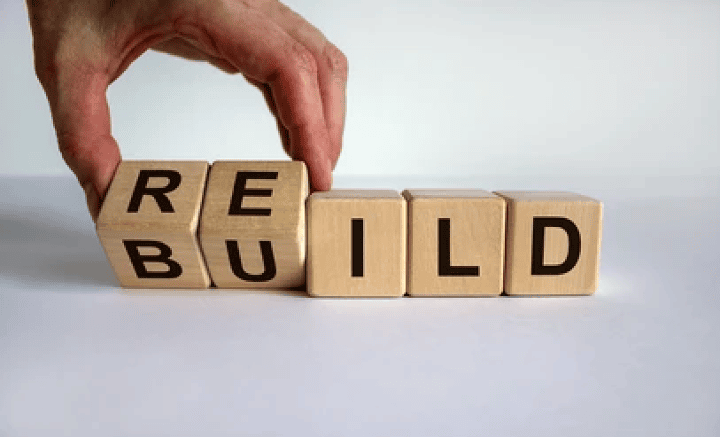Rebuilding Your Life After Addiction Treatment

by Michele Spofera
You are leaving treatment and may be wondering where to go from there—contemplating how your new life will proceed, how to continue journeying down the road to recovery. You will be faced with making different choices and employing different coping strategies post-treatment as compared to before, and odds are you will need to correct the damage done in various areas of your life flowing from the negative consequences of your addiction or substance abuse. On top of that, you may find yourself feeling vulnerable in your newfound sobriety.

No doubt, building a healthy and purposeful life after treatment can be challenging, but the right tools and positive mindset can serve as a springboard. With dedication and resolve, you can take action and make the necessary changes to maneuver your way through this difficult transition to long-term recovery and independence. Here are some general life rebuilding tips and guidelines for success post-treatment.
Avoid Triggers Post-Treatment
As you transition to a new post-treatment life in sobriety, ask whether the people in your life and your surroundings are conducive to a sober lifestyle. Avoid people, places, and situations that trigger an urge to use, especially during early recovery. Distance yourself from old friends with whom you associate using or who otherwise negatively impact your mental and emotional wellbeing. Stay clear of places that trigger cravings to use such as bars or certain people’s houses, and even think about moving to a new place if returning to your old circumstances creates cause for concern. Likewise, you may wish to consider a new career or place of employment if returning may tempt you to lapse.
Practice Kindness and Compassion
Be proud of the work you did in treatment and what you are working for now; let go of negative self-talk. Be kind to yourself, recognize any regret for past behavior, forgive yourself for your mistakes, and commit to doing things differently in the future. In the event relapse happens, reach out for help and support, learn from it, forgive yourself, recommit to your sobriety, and resolve not to let it happen again.
Repair Relationships Affected by Your Addiction
Chances are your addiction and resulting impaired judgement hurt people that you cared about. Acknowledging your misgivings and asking family and friends for forgiveness can go a long way in healing your wounds and the wounds of those you love. Understand that your loved ones may need time to re-establish trust in the relationship so be patient and persevere. In time, others may recognize the courage it took for you to admit to past mistakes and wrongdoing.
Establish a Healthy Routine and Set Goals
Establishing a healthy routine and taking care of yourself will empower you to feel good about yourself post-treatment and enable you to focus on your new life in recovery. Since you no longer have addiction holding you back, think about setting some realistic goals and taking actionable steps to achieve them. Set yourself up for success by adopting healthy practices like the following:
- Plan and structure your day with constructive activities.
- Practice good nutrition and healthy eating.
- Get plenty of rest and make time for stress-reducing, relaxing activities.
- Engage in regular exercise and keep your mind active with enriching activities that you enjoy.
- Spend meaningful time connecting with other people you care about.
- Be curious about trying new activities, hobbies, or volunteer opportunities.
Do anything and everything to make yourself feel stronger, calmer, and focused.
Find Sober Friends and Support Groups
Surrounding yourself with other sober people post-treatment can take away temptations as well as show you how to have a good time without relying on substances. Sober friends can provide a great support system and be beneficial to recovery; they can be there for each other—listening to each other’s stories, offering advice, celebrating successes, and helping each other through times of difficulty. Community support groups, like Alcoholics Anonymous or Narcotics Anonymous, can be helpful by offering comradery, strength, and inspiration to people sharing the common goal of maintaining sobriety.
The post-treatment recovery tips offered here are merely a starting point for a successful life in recovery. If you or a loved one are facing a transition to sober life and would like extra support, our compassionate professionals are here to help.
O’Connor Professional Group (OPG) offers a breadth of behavioral health services to address the needs of individuals and families living with addictions, eating disorders, mood and personality disorders, autism spectrum disorders, and other behavioral health conditions. If you or a loved one is suffering from a mental health disorder or are in need of support, contact us today. Our compassionate professionals are here to help find the resources to support you and your family.

